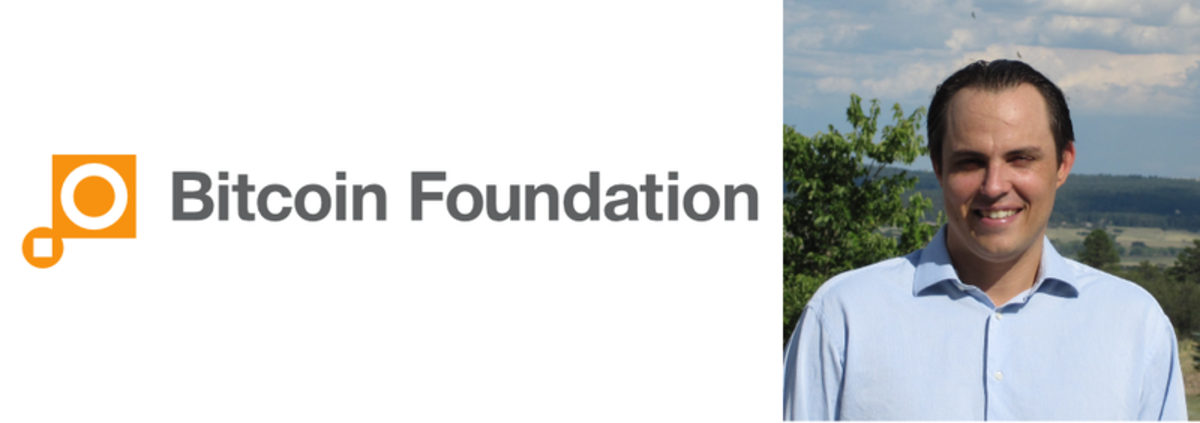
Adam B. Levine (Let’s Talk Bitcoin): Please introduce yourself and give a brief overview of what you hope to accomplish with your candidacy.
Ryan Deming: My name is Ryan Deming. I have a JD MBA from USC, University of Southern California. And I am the managing partner of a commodities trading advisor, or CTA, which is located in Los Angeles. I have about 10 years of experience as a registered investment advisor, or RIA, and as a CTA, which means that I have about a decade of compliance experience dealing with regulators and exchanges, broker dealers, futures commissions merchants. And I think that strongly differentiates me from other candidates.
My goals are as follows. First, I want to convince the securities exchanges and regulators to accept Bitcoin as collateral. And second, to do that, I think we need to educate them and the general public on Bitcoin and virtual currencies, in general. I see my primary aim as the second piece, because it is really a prerequisite to accomplishing the first piece. In other words, in order to get the regulators and exchanges to accept Bitcoin, I think we must educate them about Bitcoin. If elected to the board, I will spend most of my time doing that.
LTB: Why do you want to serve on the Foundation Board?
RD: We are starting an introducing broker that will give Bitcoiners access to commodities, pools, and hedge funds. But I’d like to see the industry go a lot farther than that. I think that’s just a start. I hope that investment opportunities for Bitcoiners will some day open up much more broadly. So that, for instance, people can use Bitcoins to invest in stocks or bonds or manage futures directly.
Simply put, my platform is this, I want to help get us to the point where Bitcoin is accepted as collateral on the securities and futures exchanges.
It’s a lofty goal, but I think in order for a currency to be truly valuable it must not only be a viable medium of exchange, but also it should be possible to use the currency to gain access to traditional investments. Some investment vehicles, whether hedge funds or commodities pools, for instance, they can accept subscriptions in whatever forms they choose, but the average person doesn’t have access to these vehicles, because their minimums are too high. The average person can only hope to make investments through an IRA, or securities account, or perhaps a managed futures account.
The rules for what can be deposited to these accounts to satisfy margin requirements, they’re highly regulated. Traditionally you can use domestic currencies, or foreign currencies, or domestic government bonds, or foreign government bonds as collateral, but that’s it. If we are going to make Bitcoin truly competitive, as a currency, I think that we must change that.
LTB: What makes you qualified for the position?
RD: My experience as an RIA and as a commodity trading advisor, I think, qualifies me for this position. I understand that for an industry to succeed, you have to work with the regulators so that the industry has a culture of compliance.
We were clearing our fund with Bear Stearns back in 2008 just months before the firm went under. We had a lot of our clients clearing their accounts at MF Global right before MF Global’s imminent collapse. We tried to get them to move their funds out. Unfortunately, it’s hard to get people to move even when there are signs that their broker dealer, or FCM, might be insolvent.
So it ends up costing people a lot of money. It ends up costing the industry a lot in terms of reputation if the industry isn’t properly regulated. So one of my goals will be to make sure that we are appropriately regulated and that we are not left to our own devices. In order for us to succeed as an industry, I think, we need to work with the regulators to make sure that we are regulated in the correct way.
LTB: Do you believe there is a right and wrong way to use a Bitcoin?
RD: It is an interesting question. I personally don’t, but I think it matters less what I think or what we think and more what the regulators think. If, for AML reasons, they don’t want Bitcoin transactions to be anonymous then we need to make sure all the virtual currencies exchanges and MSB’s take the [time to] know your customer rules seriously. In order to reach the point where Bitcoin can be used as collateral on securities and futures exchanges, which is what I want to see happen, I think we need to work really hard at swaying public opinion in our favor. And the only way to do that is to encourage a culture of compliance across the entire industry. In other words, the right way to use Bitcoins is to use it in a way that is not obviously inconsistent with how the regulators want us to be using it. Bitcoin’s reputations is important and I think we need to remember that.
LTB: What are your views on Bitcoins software development?
RD: I’ll leave that up to Gavin and the other programmers who are involved with development. I’m not strictly a software guy, I’m more of a finance guy. That’s not entirely true. I do have 10 years of experience building quantitative trading models in Matlab using SQL also. And I’ve fiddled around with HTML and PHP a bit, but I’m less interested in the software side of Bitcoin, and much more interested in its potential in the financial services industry. I think if we can get the financial services industry to embrace Bitcoin, then it’s potentially much more valuable to all of us and to anybody who adopts the currency.
So I think the question is, how do we get the regulators and exchanges to treat the virtual currency the same way as fiat money? For better or for worse how do we get that sort of equal treatment. That’s really what I’m focused on.
LTB: Do you have plans to work with the Bitcoin Community, if so how will you deal with the diversity of opinion?
RD: Yes, I would like to get more involved with the community. For me running for the board seems to be a good way to do that. Hopefully, after this campaign all of you will know me and be comfortable enough with me to approach me, if I don’t introduce myself to you first. This is all relatively new to me. I still have a lot of people to meet, and I’m looking forward to that. But, at any rate, I don’t see diversity of opinion as much of a problem.
For me, if I’m elected, I understand that my job would be to listen to what everybody has to say and just do the best that I can to listen to everybody has to say. And just do the best that I can to advocate on behalf of the entire community.
LTB: Should the Foundation hire a lobbyist? If yes, why and where should they lobby?
RD: No, I don’t think so. Our job as board members should be, one of our primary roles, should be to lobby for Bitcoin. The decisions that regulators make are largely relationship driven. I don’t think we need to convince legislators themselves to embrace Bitcoin. I don’t think that’s our audience really. We should be meeting with the regulators directly. And I think the best way to do that is to meet with them face to face. First casually at conferences then by invitation.
We have learned in the investments realm that this is how things really get done. If you are going to influence the regulators in their decision making, you first basically have to build friendships with them and treat them as equals and as friends. They understand, if they’ve been at it long for long enough, that they are as responsible for us, as the professionals, as they are for consumers. The average person may not be aware of that, but the regulators are well aware of it. An event like MF global can take out an entire industry. And that’s what keeps the regulators up at night, I think.
I think they’ll listen to us, but I don’t think the lobbyist is the right answer although you might convince me otherwise.
LTB: If you had to change one thing about the Bitcoin Foundation, what would it be and why?
RD: More conferences, I guess. I mean I say this in jest, but the conference in San Jose was a great experience for us. I’d like to see more of them. I know they are a lot of work for Lindsey. But it was a great experience. More of them couldn���t hurt anything.
Seriously, though, I don’t know the Foundation well enough yet to, I think, competently recommend changes. From what I’ve seen, everybody is accessible and everything seems to be moving in the right direction. I think we just need to keep working hard, keep working together, and hopefully our industry will someday achieve its lofty goals.
If you have enjoyed this interview, you can find the other candidates interviews here:










